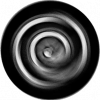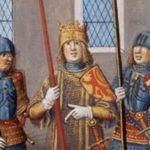
David Alexander
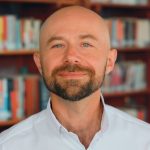
Gregory Brun
How did you first connect with Jung and analytical psychology?
I remember diving into anthropology and mythology in high school, reading avidly Claude Lévi-Strauss, Georges Dumézil and Mircea Eliade. My formative education in Life Sciences sharpened my interest in epistemology while I cultivated a sustained curiosity for the physical, cultural and spiritual factors that historically shape human settlements and landscapes. It somewhat led me into winemaking, but that’s another story.
My first relevant contact with the works of CG Jung happened when I first emigrated from France, on an airplane, to the US. I recall reading Man and His Symbols straight through and, soon after, The Archetypes and the Collective Unconscious. At the time, about to experience a country where religion had such a specific place, the works resonated with my journey.
What are your specific interests in analytical psychology?
What is fascinating about Analytical Psychology is its position at the crossroads of many disciplines. The drive for existential questioning, the mapping of Man’s inner world and the ways we establish relationships with Reality are central to my reflections.
My work with wine terroirs, cartography and photography are much impacted by these questions. Today, the delineation between object and subject and the role of unconscious materials are, for me, a great source of inspiration.
What are the key benefits of MFCGJ for you?
I feel grateful to connect with a group fostering a genuine enthusiasm for the various disciplines and art forms that make the fabric of depth psychology. Hosted at McGowan House, the MFoCGJ is also rooted in the local history of Monterey, an history of contrasts and rapid transitions. This « sense of place » provides an authentic frame for philosophical reflections.
How would you describe our group and our meetings for newcomers?
Shortly after moving to California, as I was working my way through The Red Book, I was told that a group was taking on its reading. That’s when I stepped in McGowan house for the first time and met this eclectic assembly. To the newcomer, I would say: bring your enthusiasm and don’t worry about where you come from.
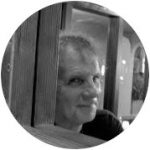
John Dotson
How did you first connect with Jung and analytical psychology?
My first reading of Jung came in the late 1960s—Psychology A01 at Northwestern University. At the university bookstore, I was drawn to the mandala on the cover and the strong images throughout the large format edition of Man and His Symbols. My continual reading of Jung, beginning then, was in parallel with much study of philosophy, mainly phenomenology, theology, and the history of science, with a co-major in communications theory. My personal associations with the Analytical Psychology Club of Chicago, soon to become the Jung Institute of Chicago, arose at that time. This was also when I discovered Jean Gebser. Through several decades, I participated in courses and offerings of the Chicago institute, working closely with analyst Lee Roloff, my dear friend and co-author.
What are your specific interests in analytical psychology?
Since the late 1960s, I have been thoroughly engaged with analytical psychology. Through time, I became aware that my spiritual praxis is that of alchemy. I am concerned with every aspect of this work that can advance awareness in balanced, healing relationships. In Jung’s terms, I am deeply engaged with the spirit of the depths and the spirit of our times.
What are the key benefits of MCCGJ for you?
Respect, collegiality, and companionship in the adventures of healing and awareness—transparency
How would you describe our group and our meetings for newcomers?
Monterey Friends is a community of intellectually and spiritually curious and caring persons who share a deep regard for honesty. I often say, Come as yourself. Also, Come and go freely.
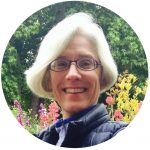
Lisa Maroski
How did you first connect with Jung and analytical psychology?
I found Jungian concepts before I found Jung’s writings. In graduate school, I experienced strange synchronicities that led me to believe that we are all connected by some unknown means. Many years later I read Memories, Dreams, Reflections and knew that I had met a kindred spirit. Life being the way it is, however, I didn’t begin to study Jung until I befriended fellow board member John Dotson. Since then, I have found his work to synergize with my own.
What are your specific interests in analytical psychology?
My main interest these days is in paradox, the union of opposites, polarity management, and so on. I think that our next great leap in consciousness will entail embracing paradox. I am working on ways to help people do that.
What are the key benefits of MFCGJ for you? How would you describe our group and our meetings for newcomers?
The meetings of the Monterey Friends of CG Jung are lively discussions among friends—we welcome all as friends—who are committed to the work of transformation and individuation. We are serious students of many teachers, not just Jung, and we have fun with all of it.
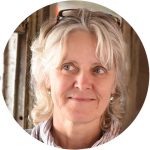
Robin Robinson
How did you first connect with Jung and analytical psychology?
I became curious about analytical psychology in the 1990s during intense analysis amid a life crisis. At this time, a hugely energetic artistic self emerged—I created images that were full of symbols and dream-like scenes. Synchronistic events led me to Joseph Pagano, the founder of the Monterey Friends of CG Jung. Joseph was leading a weekly intimate group of explorers into the psyche and warmly led me into the world of Jung. The gathering was not only intellectual, but experiential, often ending meetings with poetry writing. At that time, we had a regular dream group.
What are your specific interests in analytical psychology?
As a practicing artist, I delve into the unconscious, both personal and collective. The Jung group has helped me develop the tools and knowledge to understand where the images are coming from and given me clues into meanings and trends. Dream analysis programs continue to inform my art and psyche. In addition, my passionate interest in the climate crisis and evolving human consciousness is deeply stimulated by related topics in our programs and discussions.
How would you describe our group and our meetings for newcomers?
I feel blessed to attend regular meetings with fellow travelers who stimulate multi-level thinking and knowing, and who have become friends. The programs and discussions are important to my artistic practice and help me put it into context. I feel our coming together in truth on topics which seem avoided by the general population is critical to my own well-being and contributes to the health of the collective.
What are the key benefits of MFCGJ for you? How would you describe our group and our meetings for newcomers?
The group is always changing—people come and go as they like—we have a mix of regulars, newcomers, and visitors. All are welcome anytime. People tend to have a range of interests including psychology, consciousness, the mystical, art and literature, and current trends in the world. It is a group of creative, intuitive and intellectual minds who are curious and want to go deep.
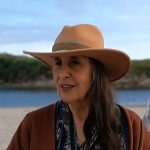
Saundra Salyer
How did you first connect with Jung and analytical psychology?
In the midst of my passionate activism during the cultural and political transformations of the late 60s and early 70s, there was a still point in Berkeley on Telegraph Avenue: In Cody’s Books I found Jung’s Man and His Symbols and next door in Shambala Books, I discovered Tibetan Buddhism. Between the two I underwent a conversion experience: here was a home I’d been looking for without knowing I was looking: mandalas, enlightenment, individuation, dreams, alchemy, mythology and the collective unconscious. I began a yoga practice, convened “consciousness raising” groups, published Women and Film and switched my major at SF State from English Literature to Transpersonal Psychology in a Psych Dept of Behavioralists and statisticians, while carrying around The Portable Jung.
Seven years later I met a Sufi Shaykh in London who opened my heart’s doors to unconditional love and the mundus imaginalis. I studied Ibn al’Arabi and the Arabic philosopher-alchemists, the Gnostic Gospels, Henri Corbin and Rumi, Sufi master, and the number one selling poet in the US. I was now a traveler of the mystic path. After several decades of teaching in Waldorf Education and raising a beautiful son and daughter, I attended Pacifica Graduate Institute. The introductory lecture in Depth Psychology cited three traditions in the field: Sufism, Tibetan Buddhism, and CG Jung!
I continue studies in all three traditions and in those of my thesis: Terrasophilia, Aspects of Embodied Divinity: Rediscovering the Great Goddess, A Journey into Soul and Place.
What are your specific interests in analytical psychology?
I’m interested in the multiple dimensions of the collective unconscious, Big Dreams, the individuation of the archetypes, world mythology, the practice of active imagination, the anima mundi and the mythopoetics of place. Just as Jung discovered in his journey to the underworld, revealed to us a century later in The Red Book, his fall into the depths of the unconscious became alchemical gold, his life’s work, so do I continually journey to discover and work my gold.
What are the key benefits of MCCGJ for you?
Collegiality and a place to share work in the many fields which converge round the table of depth psychology (analytical psychology). I thrive on integrative knowledge across disciplines and the shared awareness of the path of individuation which we all walk.
We are always learning from each other!
How would you describe our group and our meetings for newcomers?
A welcoming, warm evening of conviviality and communal interests. I remember the first time I attended a meeting. I was invited to contribute to the evening’s program by speaking on my experience at Eranos in Switzerland where Jung and scholars from around the world gathered each summer to share their current work. Here was a taste of an “Eranos” for the Monterey Bay. I walked away knowing that I would be back.
